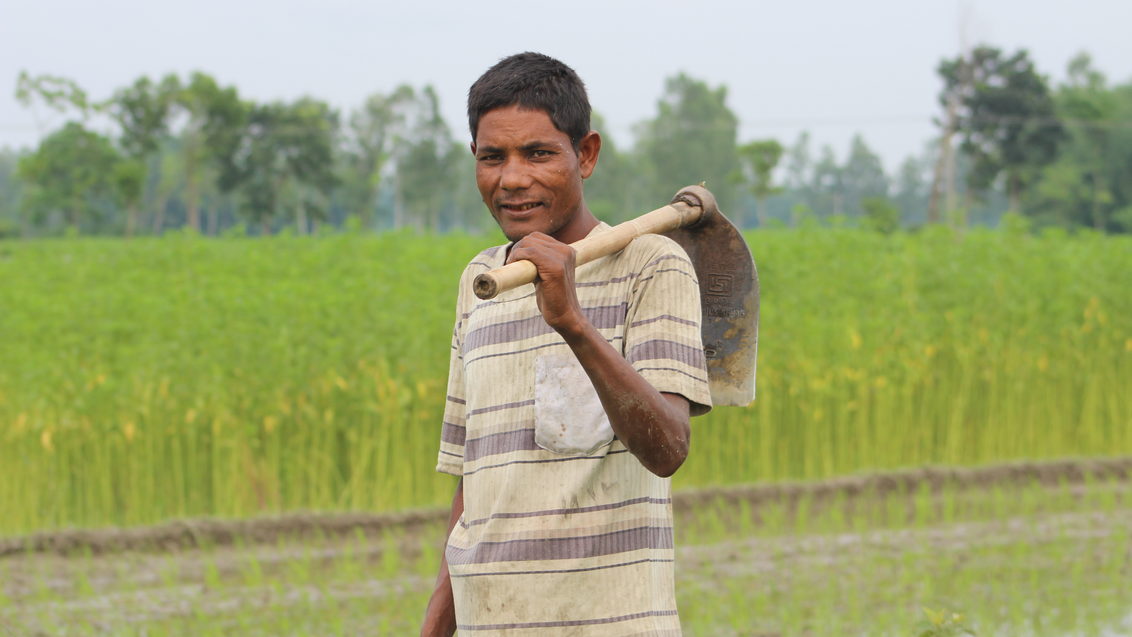Turning the tables on farmers’ weather risks


Farmers in developing African and Asian countries are particularly vulnerable to the weather. Better information and solutions reduce their risks. A new international partnership aims to provide both.
Reading, UK, 03 July 2019. The University of Reading’s Walker Institute and the Syngenta Foundation for Sustainable Agriculture (SFSA) are partnering to help smallholder farmers cope better with weather challenges.
Smallholders worldwide produce food for their families, and sell any surplus. Even small fluctuations in the weather can significantly affect their yields and income; drought or flooding can be disastrous. Smallholders need appropriate information and training on agricultural technologies, together with insurance solutions and better support services. These help them to increase production sustainably and reduce the impact of climate and weather risks on their livelihoods.
The new partnership aims to improve farmers’ access to weather and climate information, and to corresponding risk solutions. The Walker Institute and SFSA will help smallholders use weather data to make informed decisions about what, when and how to plant. They will also promote evidence-based practices to enhance crop yields. Political decision-makers will learn more about smallholders’ weather and climate risks, and how to mitigate them. In particular, the partnership will help provide agricultural insurance solutions within broader risk management programs. The initial focus is on Indonesia and Bangladesh, where SFSA already supports several initiatives, including weather insurance.
Professor Ros Cornforth, Director of the Walker Institute, says: “This exciting partnership paves the way for collaborative research with SFSA. Using our collective expertise, interdisciplinary research and innovative approaches to capacity-building, we can improve the livelihood choices of farmers in some of the poorest regions. Improving access to the latest innovations and expertise will not only benefit individual families. It also has the potential to strengthen the food security of entire nations.”
SFSA Executive Director Dr. Simon Winter comments: “De-risking smallholders’ investments in improving food production means protecting them from financial catastrophe in the face of increasingly volatile weather. This can be achieved through climate insurance solutions. There is an urgent need for more experts in this field. Our partnership with the Walker Institute is a great step forward. It will institutionalize SFSA knowledge, experience and expertise gained over the last decade, and help transfer it to young professionals.”
Further information: Shanti Windsor, University of Reading, s.d.windsor@reading.ac.uk, Tel. +44 118 378 2703
The Walker Institute is an interdisciplinary research institute supporting the development of climate-resilient societies. Its research aims to help address fundamental questions around social, economic, technological, and political strategies around the world. www.walker.ac.uk/
The Syngenta Foundation for Sustainable Agriculture, a non-profit organization based in Basel, Switzerland, helps smallholders become more professional growers. The Foundation works with partners in developing countries and emerging markets to extend science-based know-how, facilitate access to quality inputs, and link smallholders to markets in profitable ways. This adds value to rural communities, and sustainably improves food security. www.syngentafoundation.org
